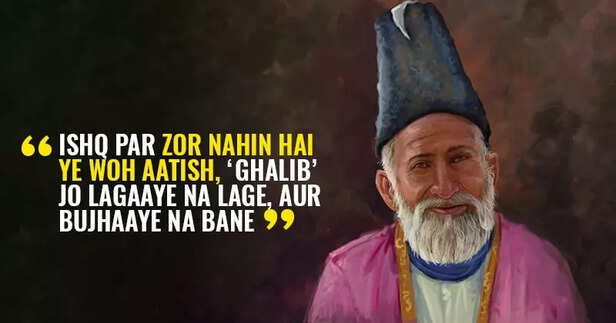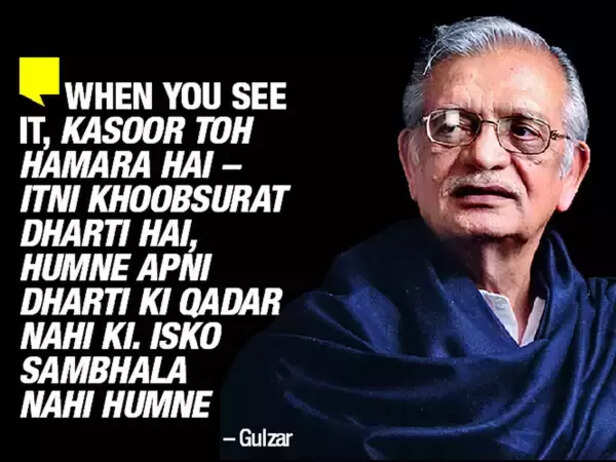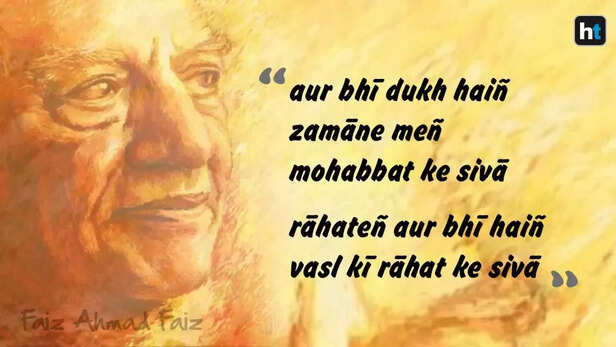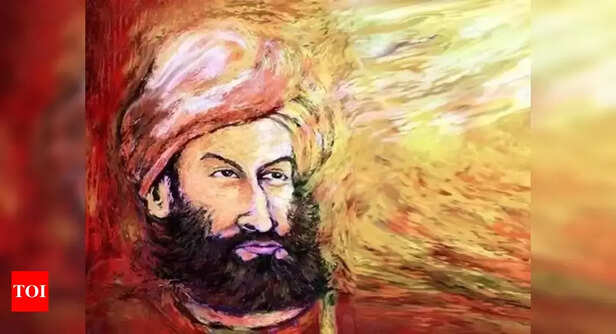One-Sided Love: The Beauty and Pain That Lives Forever
Nidhi | Jan 02, 2025, 15:36 IST
Ae Dil Hai Mushkil
Unrequited love, though often seen as painful, is undeniably powerful and timeless. This article dives deep into the beauty of one-sided love—how it endures and transforms into poetry, art, and music. With the profound words of poets like Mirza Ghalib, Faiz Ahmed Faiz, and Javed Akhtar, we explore the complex emotions of loving without return. Is one-sided love truly tragic, or is there a quiet strength in loving with no expectations? This thought-provoking piece invites readers to reflect on the paradoxical power of love that’s never returned, yet never forgotten.
"Ek tarfa pyaar ki taqat hi kuch aur hoti hai… auron ke rishton ki tarah yeh do logon mein nahi bat’ti … sirf mera haq hai ispe." – Shah Rukh Khan, Ae Dil Hai Mushkil
Unrequited love is an enigma—a fire that burns without consuming, a song that echoes endlessly in the silence of the heart. It exists in its purest form, untarnished by expectation and untouched by reciprocity. It is a love that doesn’t seek validation or confirmation, one that flourishes in solitude and lingers even when unreturned. But the question persists: Can such love truly be called love? Or is it, rather, a reflection of the lover’s own yearning, a haunting of the heart that refuses to let go?
One-sided love is, in its essence, a paradox. It holds a unique power—a kind of invincibility that is born from its sheer existence in isolation. Yet, that very isolation often leads to an aching solitude, an unbearable sense of longing. It’s a love that can neither be forgotten nor reciprocated, living forever in the realm of unspoken words, unnoticed glances, and unreachable dreams. It stays with you long after you’ve moved on, living in your thoughts like an echo that refuses to fade.
One-sided love doesn’t need validation. It thrives in its self-sufficiency. There is something almost sacred in giving yourself completely to someone, knowing that they may never return the sentiment. This form of love is not a transaction; it’s an offering, a gift of the heart that doesn’t seek acknowledgment.

Mirza Ghalib, one of the most revered poets of the Urdu language, captured this sentiment perfectly:
"Ishq par zor nahi hai yeh woh aatish Ghalib,
Jo lagaye na lage aur bujhaye na bane."
This type of love isn’t controlled by logic or reason. It cannot be extinguished by circumstance or rejected by the object of affection. The lover burns with an intensity that defies comprehension, yet despite this, there is no expectation of relief, no plea for reciprocity. The love remains pure, not tainted by the desire to possess, but only by the power of one’s emotions. Still, the question lingers—does this selfless devotion liberate the soul, or bind it in invisible chains of unfulfilled desire?
In unrequited love, longing becomes an art form. It’s not just an emotion but a state of being, a way of living. It teaches us to find beauty in the most fleeting moments—an unexpected glance, a conversation that leaves you breathless, a memory that never fades. Every small interaction becomes a cherished piece of a puzzle that will never be completed.

As Gulzar beautifully expressed in his poetic verse:
"Humne dekhi hai un aankhon ki mehakti khushboo,
Haath se chhoo ke ise rishton ka ilzaam na do."
There’s an undeniable beauty in longing, but does that beauty come from the pain, or from the very act of missing someone? The aching desire to be near them, to hold them, to feel their presence—it transcends the reality of absence and becomes something more than just longing. Perhaps it’s a way to escape the harshness of reality and find solace in the idea of love, even when it’s unrequited. But in truth, is it a beautiful thing, or merely a comforting illusion?
Unrequited love has a unique power: it transforms pain into poetry, suffering into art. The anguish it causes is raw, unfiltered, and achingly honest. It takes the brokenness of the heart and turns it into verses that resonate with anyone who’s ever loved without being loved in return. This is the power of one-sided love—it doesn’t remain confined to the individual’s heart but extends out into the world through the art it creates.
"Kabhi yun bhi aa mere dil mein ke tera saamna ho,
Aur raah bhi dekhoon ke mujhe intezaar ka suroor ho."
-:Parveen Shakir
This pain is not fleeting. It lives on, not just in the heart of the lover, but in the words that spill out from it. It’s immortalized in poetry, in songs, in literature, in every art form where the heart bares its vulnerability. And so, one-sided love becomes a paradox: the pain that creates beauty, the emptiness that fills the soul with more than words can express. But why do we continue to glorify this pain? Is it because it feels more eternal than joy, more profound than happiness?
Unrequited love remains forever unsolved. It’s like a riddle that the heart refuses to understand, a question that has no answer. And yet, this very uncertainty is what gives it its timeless quality. Love that is never tested or tainted by the realities of a relationship remains suspended in a state of possibility, an untouched ideal that can never be fulfilled.

Faiz Ahmed Faiz, with his poignant and thought-provoking poetry, often spoke of this paradox:
"Chale bhi aao ke gulshan ka karobar chale,
Gham-e-firaaq na ho, gham-e-baahar chale."
Does the beauty of one-sided love lie in its unresolved nature? Is it the absence of closure that makes it so hauntingly beautiful? Or does this unfinished love, this love without reciprocation, leave us with an eternal ache that we somehow come to cherish? Perhaps it’s this very incompleteness that gives one-sided love its immortality.
One-sided love is, in many ways, a rebellion. It defies the conventions of relationships. It exists solely in the heart of the lover, without the need for the other person to share in it. It’s a reminder that love, at its most authentic, isn’t about possession; it’s about presence.
Javed Akhtar’s timeless words speak to this revolution:
"Dil dhoondta hai phir wohi fursat ke raat din,
Baithhein rahe tasavvur-e-jaana kiye hue."
-:Javed Akhtar
But perhaps this rebellion isn’t just against the world, but against oneself. What if one-sided love is the heart’s way of holding on to something impossible, just to feel alive? Is it a defense mechanism, a way of preserving a dream that keeps us afloat, even when the tides of reality threaten to drown us?
Unrequited love is, in every sense, a paradox. It hurts, but it heals. It breaks you, but it builds you. It asks for nothing, yet it gives everything. This kind of love is not something that fades away with time; it lingers, echoing in the quiet spaces of your heart long after the world has moved on.

As Mir Taqi Mir once said:
"Ishq mujhe aur kuch yaad nahi,
Yeh dard hai aur dawa yaad nahi."
Sometimes, the greatest love stories are the ones that never begin. They remain suspended in time, untouched by reality, alive only in the whispers of poetry and the hearts of those who dare to love without expecting to be loved in return. These stories aren’t meant to be completed; they are meant to be lived, experienced, and felt. And perhaps, in their incompleteness, they are more whole than any love that is returned.
Unrequited love is an enigma—a fire that burns without consuming, a song that echoes endlessly in the silence of the heart. It exists in its purest form, untarnished by expectation and untouched by reciprocity. It is a love that doesn’t seek validation or confirmation, one that flourishes in solitude and lingers even when unreturned. But the question persists: Can such love truly be called love? Or is it, rather, a reflection of the lover’s own yearning, a haunting of the heart that refuses to let go?
One-sided love is, in its essence, a paradox. It holds a unique power—a kind of invincibility that is born from its sheer existence in isolation. Yet, that very isolation often leads to an aching solitude, an unbearable sense of longing. It’s a love that can neither be forgotten nor reciprocated, living forever in the realm of unspoken words, unnoticed glances, and unreachable dreams. It stays with you long after you’ve moved on, living in your thoughts like an echo that refuses to fade.
1. The Power of Loving Without Limits

Mirza Ghalib
Mirza Ghalib, one of the most revered poets of the Urdu language, captured this sentiment perfectly:
"Ishq par zor nahi hai yeh woh aatish Ghalib,
Jo lagaye na lage aur bujhaye na bane."
This type of love isn’t controlled by logic or reason. It cannot be extinguished by circumstance or rejected by the object of affection. The lover burns with an intensity that defies comprehension, yet despite this, there is no expectation of relief, no plea for reciprocity. The love remains pure, not tainted by the desire to possess, but only by the power of one’s emotions. Still, the question lingers—does this selfless devotion liberate the soul, or bind it in invisible chains of unfulfilled desire?
2. The Beauty in Longing

Gulzar
As Gulzar beautifully expressed in his poetic verse:
"Humne dekhi hai un aankhon ki mehakti khushboo,
Haath se chhoo ke ise rishton ka ilzaam na do."
There’s an undeniable beauty in longing, but does that beauty come from the pain, or from the very act of missing someone? The aching desire to be near them, to hold them, to feel their presence—it transcends the reality of absence and becomes something more than just longing. Perhaps it’s a way to escape the harshness of reality and find solace in the idea of love, even when it’s unrequited. But in truth, is it a beautiful thing, or merely a comforting illusion?
3. When Pain Becomes Poetry
"Kabhi yun bhi aa mere dil mein ke tera saamna ho,
Aur raah bhi dekhoon ke mujhe intezaar ka suroor ho."
-:Parveen Shakir
This pain is not fleeting. It lives on, not just in the heart of the lover, but in the words that spill out from it. It’s immortalized in poetry, in songs, in literature, in every art form where the heart bares its vulnerability. And so, one-sided love becomes a paradox: the pain that creates beauty, the emptiness that fills the soul with more than words can express. But why do we continue to glorify this pain? Is it because it feels more eternal than joy, more profound than happiness?
4. The Eternal Mystery of Love That’s Never Returned

Faiz Ahmed Faiz
Faiz Ahmed Faiz, with his poignant and thought-provoking poetry, often spoke of this paradox:
"Chale bhi aao ke gulshan ka karobar chale,
Gham-e-firaaq na ho, gham-e-baahar chale."
Does the beauty of one-sided love lie in its unresolved nature? Is it the absence of closure that makes it so hauntingly beautiful? Or does this unfinished love, this love without reciprocation, leave us with an eternal ache that we somehow come to cherish? Perhaps it’s this very incompleteness that gives one-sided love its immortality.
5. A Silent Revolution of the Heart
Javed Akhtar’s timeless words speak to this revolution:
"Dil dhoondta hai phir wohi fursat ke raat din,
Baithhein rahe tasavvur-e-jaana kiye hue."
-:Javed Akhtar
But perhaps this rebellion isn’t just against the world, but against oneself. What if one-sided love is the heart’s way of holding on to something impossible, just to feel alive? Is it a defense mechanism, a way of preserving a dream that keeps us afloat, even when the tides of reality threaten to drown us?
A Love That’s Never Lost

Mir Taqi
As Mir Taqi Mir once said:
"Ishq mujhe aur kuch yaad nahi,
Yeh dard hai aur dawa yaad nahi."
Sometimes, the greatest love stories are the ones that never begin. They remain suspended in time, untouched by reality, alive only in the whispers of poetry and the hearts of those who dare to love without expecting to be loved in return. These stories aren’t meant to be completed; they are meant to be lived, experienced, and felt. And perhaps, in their incompleteness, they are more whole than any love that is returned.
